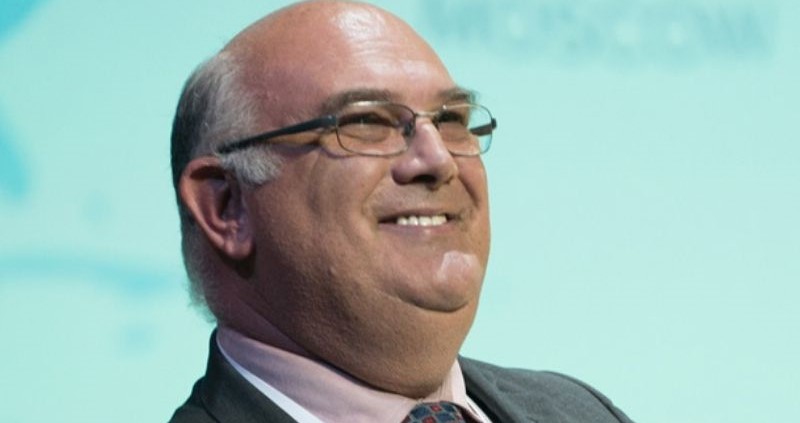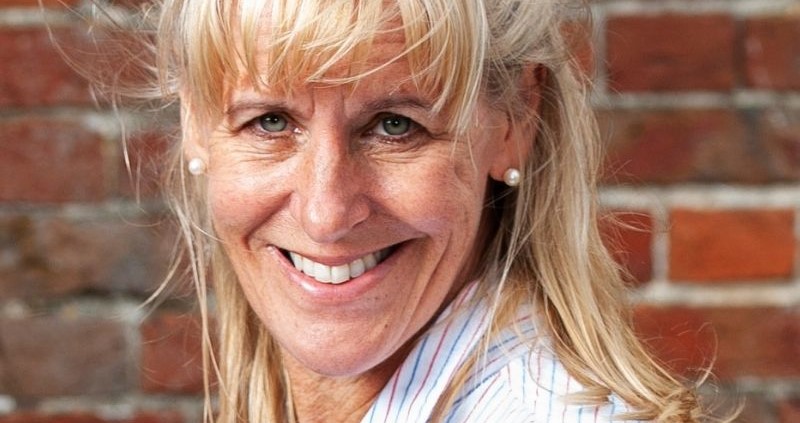Full of praise for the NFU’s trailblazing efforts in working towards net zero, Dr De Jager opened his keynote speech on day 2 of NFU Conference 2022 by saying: “The NFU has not only taken the lead when it comes to policy development on climate change, but you’ve also opened up new horizons for farmers across the globe when you committed to net zero. I will never forget that day.
“Thank you also for the leadership you have shown in the global trade debates, which is extremely important on the topic of food security.”
Dr de Jager, who has farmed in South Africa since 1997, was emphatic about the importance of science driving policy. He said: “The most important function of any farmers' organisation is advocacy and to influence policies. To influence policy you need to have policy, and that is a luxury because it means you have to have consensus amongst farmers.
“No two farmers in the world farm the same; farmers are entrepreneurs, they are decision makers, they are people who think for themselves. In the process of developing policies you need to be informed by the environment and especially by science. If policies are not science based, they are useless.”
He explained that if policy is science led, it will more likely stand the test of time. He also spoke about the WFO’s scientific committee, established by asking its constituents to bring their best scientists to the table.
Dr de Jager said: “Let’s consult them in all our policy making and processes. Let’s make sure our policies are based on proper science. When we talk about food security, food systems, food value chains, we are not only talking about natural sciences. It’s more and more important also to hear the voice of the social scientists, and the economists, and the communication scientists.
“It becomes more important every day [about] how we get our message across, how we communicate to the consumer.
“The NFU has not only taken the lead when it comes to policy development on climate change, but you’ve also opened up new horizons for farmers across the globe when you committed to net zero. I will never forget that day.”
Dr Theo De Jager, President of the World Farmers' Organisation
“There’s no more important person in the life of a farmer than the consumer deciding what the family will have for dinner.”
Food security
According to Dr de Jager, food security should be looked at on three levels; globally, nationally and on a household level.
He explained that food security no longer means that a country needs to produce everything they consume. He said: “It means that you produce enough of that in which you have a competitive advantage, so that you can exchange [for] that which you do not have.”
Globally, Dr de Jager said there is enough food in the world, and that farmers are outproducing; we can still afford to have 30% food loss and waste. However, there are close to 900 million people in the world who are uncertain if they will eat each day, and Africa is home to many of these.
In Africa, 98% of the farmers are classified as smallholders, and Dr de Jager warned against romanticising this version of farming, as it is “a poverty trap”.
He went on to say that if farming is not profitable, it is not sustainable, because farming is a business and you need to link up with markets where you can sell your surpluses at a profit.
He said: “Europe must accept that as long as Africa is hungry, you will not sleep. Because nothing stops a hungry man, no fence, no door, no lock, no border and no sea. People will go where they believe they can feed their families.
“Covid disrupted markets, to the extent that a lot of food was lost on farm. But millions of farmers changed how they farmed or what they farmed to adapt to the new circumstances.”

‘Beyond advocacy’
“There’s no more important investment you can make on farm than on the health of your soil.”
Dr Theo De Jager, President of the World Farmers' Organisation
Dr de Jager made a plea for farmers going beyond advocacy. He said he wants farmers to use their networks and to look at action-orientated initiatives such as the NFU’s net zero pledge.
Before his term ends in June, Dr de Jager hopes to launch a farmer-to-farmer pledge on soil health.
He said: “More than 90% of what a farmer can do about climate change is being done in the soil, and the soils go nowhere – it’s yours.
“There’s no more important investment you can make on farm than on the health of your soil.
“I will leave this little portion of the planet, of which I am the custodian for a very short time in its existence, in a better condition for the next generation than what I found it in. If enough farmers can do that, we will address most of the challenges we have and we will really be remembered as the generation of farmers who made that difference.
“I want to challenge you to join such a movement and see if we can heal the planet for ourselves and by ourselves. That is going beyond advocacy.”


